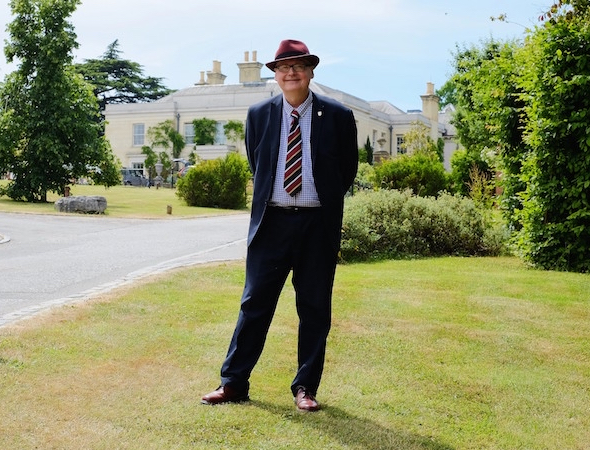
How did you become involved in researching Alexander Wilson?
A childhood friend and professional colleague in Drama, Richard Shannon, invited me to have lunch with his father, the poet and actor, Mike Shannon in the vaults of the Royal Society of Arts in 2005.
Richard knew I was an academic researcher and at the time had been focusing on espionage writing and the performance rituals of spying.
I had also successfully unravelled some mysteries about my own father’s past from the Second World War.
Richard’s father Mike was in his 72nd year and wanted to know more about the mysterious father he had last seen in uniform going to war on a railway station platform in the Yorkshire Dales in 1941.
Mike had been a child of seven when he last saw him.
Just over a year later he’d been told he’d died in the Battle of El Alamein.
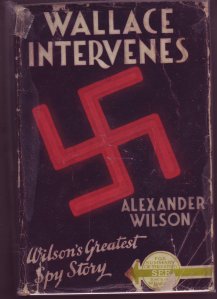
When his mother died in 1965, all he could find was a spy novel Alexander Wilson had written called Wallace Intervenes, published in 1939, and an album of largely unlabelled photographs of Mike’s parents in British India during the 1920s and early 30s.
What did you find out?
I thought this would be very straightforward and fairly easy.
It’s unusual for Lieutenant-Colonels to die in battle and records of casualties in the Second World War are accessible online.
With next of kin permission Mike Shannon would have had access to his father’s War Office file for a small fee, and publishing databases would have been able to determine the extent of his writing career.
Within 24 hours I discovered that Mike’s father had published more than 20 novels starting from 1928 and going on until 1940. His main publisher was Herbert Jenkins who also published P G Wodehouse.
The difficulty was corroborating the existence of a Lieutenant Colonel or Major Alexander Douglas Chesney Wilson, who according to Mike’s 1933 birth certificate had been in the Middlesex Regiment. In the photograph he and Richard had of him he was wearing an officer’s uniform of the Punjabis Regiment of the British Indian Army during World War Two.
Only one Lt Col Wilson serving in the Punjabis had been killed in 1942 and that had been at the first defensive battle of El Alamein in July; not the famous battle commanded by General Bernard Montgomery in October.
The photograph of the Colonel Wilson killed by artillery fire did not match that of Mike’s father and his back-story did not corroborate in any way.
I spent an entire day at the National Army Museum in Chelsea going through Middlesex Regiment archives, Army lists and other directories without finding anything about him.
I remember walking down the Royal Hospital Road on the way to Sloane Square tube station and becoming very anxious that this investigation could result in Mike discovering that his father was anything but a hero.
Perhaps he was a fraud, an impostor, and a fantasist?
The MOD archives had no such record for a man born in 1893.
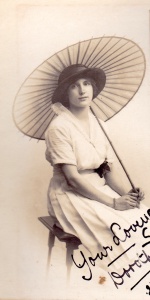
In the end apart from the novels , Mike’s father, Alexander Wilson, was somebody who had neither a beginning nor end to his life.
Some kind of human illusion or ghost.
We came up against brick walls all the time.
His first publisher Longmans and Green had preserved a file of contracts and correspondence despite their war-time headquarters in Paternoster Square being blitzed by bombs and fire.
Mike was able to see his father’s handwriting for the first time since he was a child.
A letter handwritten by his mother Dorothy in 1936 said he had been preparing a trip to Spain during Spanish Civil War.
But then nothing.
Random House who maintained the archives of Herbert Jenkins had no files; not even copies of the books he wrote for them.
All the papers kept by his literary agents Curtis Brown and John Farquharson had been destroyed in a fire.
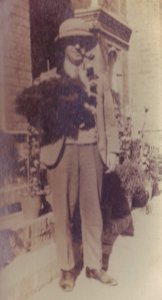
Islamia College, Lahore, University of Punjab, where Alexander Wilson worked as a Principal and Professor of English Literature, confusingly sent an inside page of a collection of essays he had edited in 1930 where he was represented as Sir Alexander Wilson.
Mike was convinced his father had been a spook.
The blurb for the 1940 collection of three novellas ‘Chronicles of the Secret Service’ stated that his previous novels ‘have achieved their extraordinary wide sales not only because they are thrillers of the front rank, but because Major Alexander Wilson probably knows as much about the Secret Service as any novelist.’
Mike had described his father taking him to the German Embassy in the spring of 1938 where he saw his father speaking fluent German to somebody he later identified as the Nazi Foreign Minister Joachim Von Ribbentrop.
Were his novels any good?
For their time they were very good indeed.
In the Wallace of the Secret Service series that he had started in 1928 and continued with until 1940 he had created the James Bond and fictional MI6 of the 1930s.
The fictional Sir Leonard Wallace had uncanny similarities to the first MI6 ‘C’ Captain Sir Mansfield Smith-Cumming.
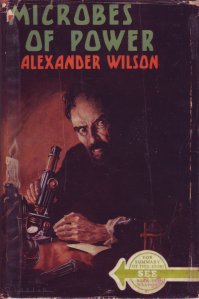
It was a global secret service fighting the Soviet Union and Comintern, Nazis, terrorists and organised crime right across the world.
One of the novellas in the 1940 volume ‘The China Doll’ had Sir Leonard Wallace praising the reach and power of Japanese intelligence in the Far East and predicting their military victory in Hong Kong and Singapore.
Nothing published anywhere at the time that I could find, whether in newspaper factual report or novelistic fiction, had this take on the Japanese who were complacently and racially pooh poohed as inferior and military midgets.
Some of the non Wallace of the Secret Service novels were very significant and special.
The Crimson Dacoit (1933) fully characterised and understood the mind of the fundamentalist terrorist and presented a John Le Carré style narrative about betrayal and duplicity within the heart of British Indian Imperial intelligence.
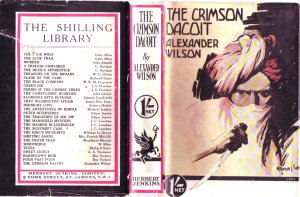
Mr Justice (1936) was an exquisite and brilliant crime thriller confronting the issue of social and economic injustice and providing a punch of surprise at the end that more than rivalled Agatha Christie at her best.
Yet, Alexander Wilson was almost completely invisible in key volumes of 20th century crime and espionage criticism and anthology.
It was as though he had never existed. At the same time the world’s leading English speaking newspapers had reviewed him as one of the best.
How were you able to take this investigation further?
The simple answer is Goldsmiths, University of London.
I consulted my then head of department, Dr Gareth Stanton, who agreed that it could become an official research project.
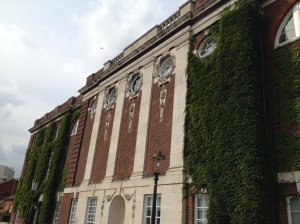
In those days each member of academic staff was allocated a modest yearly expenses budget of about £1,000.
The scale and proportion of the challenge was growing day by day.
Trying to locate and acquire Wilson’s books on the second hand market was expensive.
Many of them were rather old and rare.
But I felt it was important that Mike had a full set of his father’s books.
At this stage they were the most tangible relics and evidence of his life, creativity and cultural legacy.
They were the closest we could get to any sense of reality about him.
The story was genuinely global.
There were leads in the USA, Canada, Pakistan, Egypt, Palestine, Australia, Hong Kong, France, Ireland, and all parts of the United Kingdom to follow.
There was a very long and complex navigation of Canada’s freedom of information laws which eventually yielded the secrets of Wilson’s imprisonment in 1919 in the country’s most notorious prison farm.
He experienced six months hard labour in a brutal penitentiary regime that was something like that dramatised in the famous film The Shawshank Redemption.
Primarily this was a humanitarian project.
The Goldsmiths ethos is inquiring, investigating and contributing new knowledge and understanding to individuals and people less fortunate than ourselves.
Mike’s father was some kind of phantom.
You could imagine him, and you could read the spectacular expression of his imagination in the fiction he wrote, yet you could not prove his existence.
Mike wanted to establish and confirm the roots of his identity not only for himself, but also for his son Richard and daughter Kate, and his grandchildren.
All human beings are entitled to integrity, dignity and identity.
Family history and the legacy of the past are key foundations of these principles.
How did Mike Shannon respond to the twists and turns of discovery in this project?
At first he was immensely proud of his father’s literary achievements; something he had had no idea about at all.
One novel in particular, a romantic comic novel The Magnificent Hobo (1935) impressed him enormously because it was all about a theatrical touring company travelling from village to village and town to town putting on plays and concert parties in memorial halls, music halls and theatres.
He said: ‘My dad knows everything about the actors, acting and the theatre world. He knows it inside out and the novel is hilariously funny. The comedy in his writing endures as charming entertainment to the present day.
And now I am convinced he was in the business. He knows it too well!’
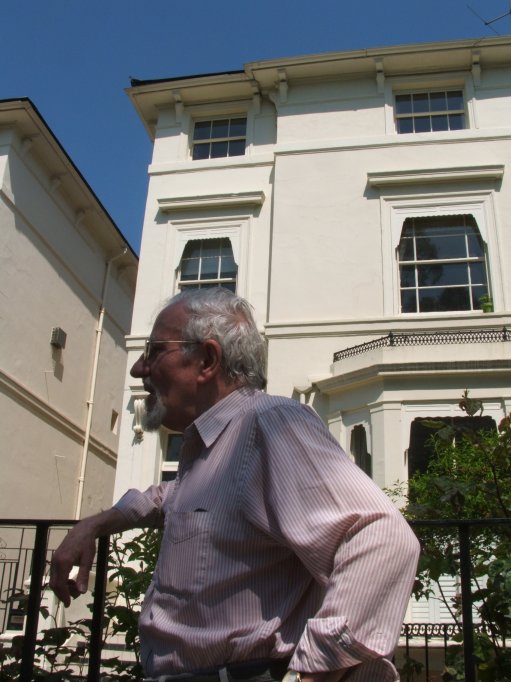
One of the methodologies of researching seemingly intractable mysteries is to randomly shake up and traverse data and facts that seem to be fixed.
I think I had thoroughly researched and become familiar with practically every Alexander Wilson born in the English speaking world in 1893 and who had died in 1942.
I began collecting data and material around these years but still mixing in the combination of facts that we knew.
For example, Alexander Wilson, Army officer, living in Hendon during the Second World War.
On 1st January 1944 there was a bankruptcy notice on the front page of the Times.
I sent Mike the cutting along with a thick file of other random materials.
He had the shock of his life one quiet lonely Sunday afternoon.
He recognised the specific address as where he had been living with his mother and father before they moved to Yorkshire in 1941.
His father Alexander Wilson had not been killed at the Battle of El Alamein.
His father had abandoned him.
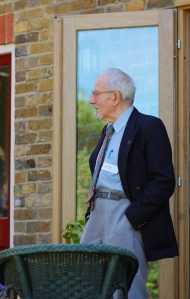
All the other adults controlling his world when he was a child must have been conspiring in the most appalling lie you could possibly impose on somebody so young and vulnerable.
They had made Mike falsely grieve over the death of his father.
He had lived the rest of his life never knowing that his father was still alive.
Now he had no idea what happened to him.
This was an appalling experience.
So deeply tragic and hurtful.
His mother and her brother, ‘Uncle Reg’, who had broken the fake news of his father’s death when he was only 9 years old, and her parents, grandpa Matt and grandma Edith, were most likely participants in this cruel deception.
What did Mike want you to do next?
He realised that this was turning very dark indeed.
He was so very, very sad.
He had always clung to the memory of his gallant father giving his life to his country while commanding troops in one of the most important battles in British history.
It was so disillusioning.
He asked me to engage in strict confidentiality and to speak to no one else about the project apart from Dr Stanton who I had to report to once or twice a year.
With great courage and dignity he asked me to seek out the truth whatever that might be.
And that is what I tried to do.
How important was the bankruptcy information?
Initially it seemed to be the significant lead.
At the time people made bankrupt had to undergo a public examination which was usually reported in the newspaper media.
You would have thought a high profile writer and army officer would have generated some coverage.
But again nothing.
I spent an entire week searching every kind of newspaper published around that time and bankruptcy records at the National Archives.
In the end the breakthrough came just as an archive centre was closing.
I called up a fairly obscure financial directory used by accountants and in the smallest type possible found an entry setting out Alexander Wilson’s various middle names.
They included Douglas, Gordon and Chesney.
But his real identity was fixed as Alexander Joseph Patrick Wilson.
I immediately triangulated my memory of that Alexander Wilson as being the son of a sergeant in the Army Hospital Corps born in Dover on 24th October 1893.
This specific information enabled me to obtain Alexander Joseph Patrick Wilson’s War Office file and then all the doors started opening.
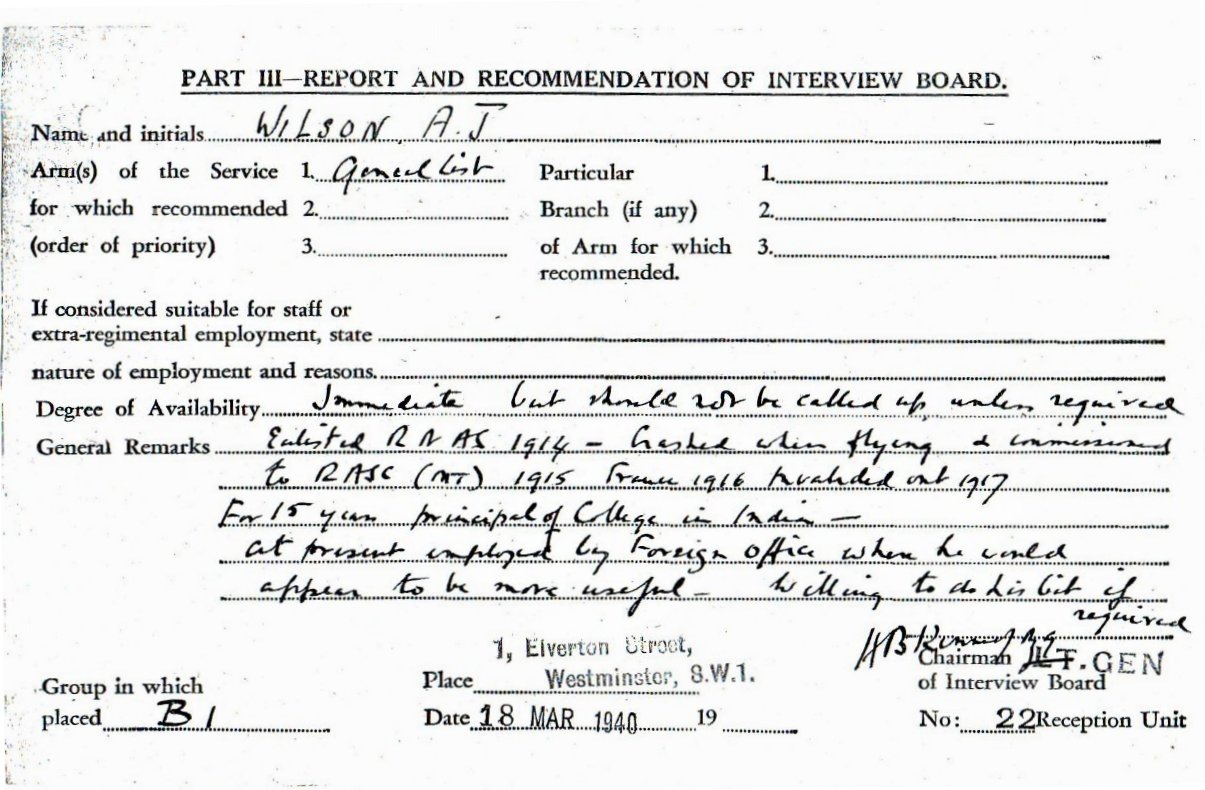
His service record clearly disclosed that he had a family before meeting Mike’s mother Dorothy from 1925.
After a few more weeks’ searching, it became clear there were siblings, but were they still alive?
The discovery of his death certificate in Ealing in April 1963 disclosed two different identities and had been registered by another son- perhaps from a later marriage.
I established that Mike’s father had first married Gladys in Lyndhurst, Hampshire in 1916, they had their first born son Adrian in 1917 and sadly he had died in 1998.
Gladys had died in 1991.
But two siblings were still alive- Dennis born in 1921 and Daphne in 1922.
What was Mike’s reaction to this news?
He was absolutely delighted.
Something so dark and tragic was giving him a wider family he never knew existed.
With both his parents dead he had felt something of an orphan.
I spoke to Dennis on the phone and he agreed to meet me at his home in Southampton.
He was astonished to receive the phone-call.
In fact, he did admit to being utterly ‘gobsmacked’ to use the popular vernacular of the time.
I was astonished to learn that Dennis had four unpublished manuscripts of his father’s novels.
And I was so relieved that he was prepared to meet me.
Had Dennis any idea of Mike’s existence?
None whatsoever.
This was not something to reveal on the phone.
He was a charming, charismatic and courteous gentleman in his eighties, but super-intelligent and sharp as the highest carat diamond.
I felt a huge responsibility particularly when I discovered that he had been disabled while in action at the Battle of Normandy serving in the same infantry division as my late father.

He was also a poet; something he shared with the half brother he never knew he had.
Dennis received all the information about Mike and Dorothy with great equanimity.
Everything began to fit and make sense with his memory of the past.
What I didn’t know is that after leaving Mike’s mother Dorothy in 1941, his father had met and married another woman whom he’d worked with in the secret intelligence field.
Her name was Alison and they had had two sons.
Dennis then related the extraordinary story of the funeral in Portsmouth, the two widows meeting each other at the graveside, Dennis and his mother pretending to be Alexander Wilson’s sister and nephew so that Alison’s young sons Gordon and Nigel did not know about their father’s bigamy.
He had last seen them at the funeral 44 years previously.
Could I track them down?
Was it possible that Alison was still alive?
How willing was Dennis to meet Mike?
Oh very willing, but Dennis had some huge mountains to climb himself.
His sister Daphne had not attended the funeral and had not known about her father’s bigamous marriage to Alison and the existence of their two sons Gordon and Nigel.
Dennis had to negotiate the challenge of explaining, apologising and giving Daphne the space to come to terms with these extraordinarily powerful and emotionally demanding revelations.
Eventually Mike met Dennis and his family and it was clear that they were kindred spirits.
They all got on with each other splendidly.
The two poets began exchanging correspondence in Shakespearean sonnets.
How quickly were you able to find out what had happened to Alison, Gordon and Nigel?
The key was going to be the likelihood that Gordon had a career in the Royal Navy, which was certainly the case and a very distinguished one too.
He had reached the rank of Captain and was a highly respected expert in naval defence studies.
Gordon and Nigel agreed to meet me at Simpsons in the Strand for lunch.
I had booked a table affording the greatest privacy- just underneath an impressive oil painting in the famous restaurant.
I remember attending the beautiful ecumenical chapel at King’s College, University of London which is nearby just beforehand and saying a few prayers that this stage in the investigation would go well.
These were mature men of stature and authority and we very helpfully shared the extraordinary pieces of one very large jigsaw puzzle.
I was telling them things they didn’t know and they were certainly telling me things I didn’t know.
Their mother, Alison, had died within weeks of Mike and Richard asking me to start the research project in 2005.
Nigel was a very cautious, but friendly and emollient City businessman.
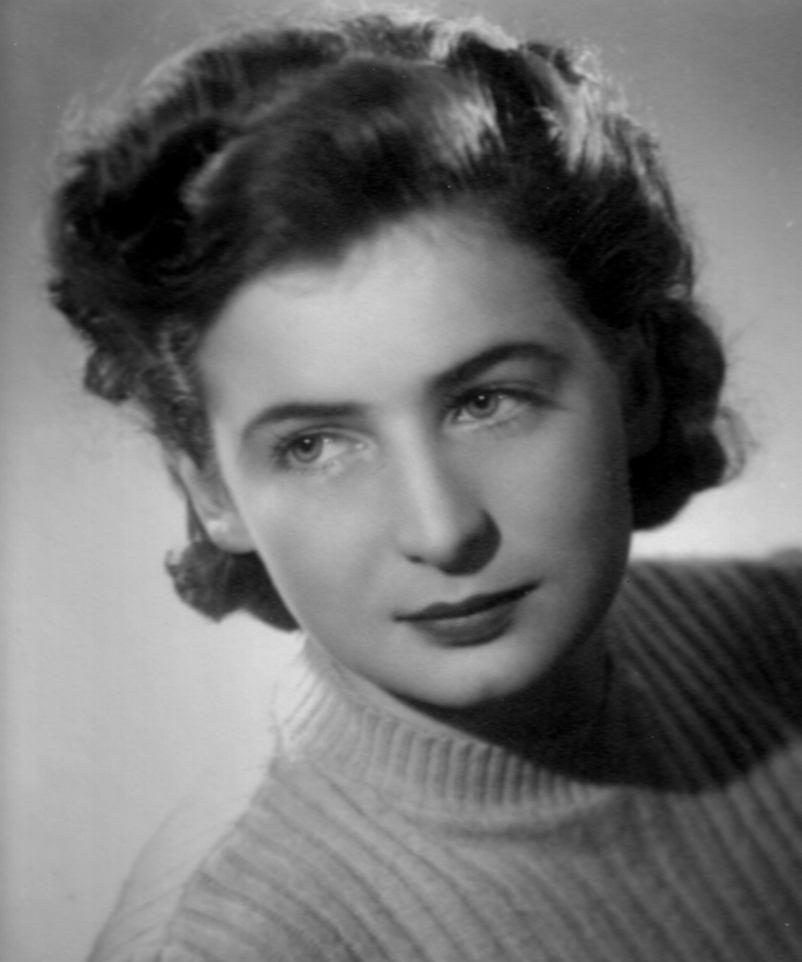
I learned that Alison had written a very detailed memoir of her life with Alexander whom she had met at a telephone bugging unit in MI6 in 1940.
It was very critical and condemnatory of Alexander.
And both Gordon and Nigel revealed that they had been contacted by another son from a further bigamous marriage.
Douglas Ansdell had been on his own personal odyssey of family history investigation.
Alexander Wilson had met his mother most probably in the national health service where she worked as a nurse.
They married in 1955 and Douglas was born in that year.
Two years later they had moved to Scotland.
Pretty devastating revelations really.
What was so marvellous about the meeting was that Gordon and Nigel were very willing to meet Dennis, Daphne and Mike.
And there was another extraordinary discovery about that enduring mystery of nature versus nurture.
Nigel’s daughter, Ruth, was a successful and hugely respected professional actress who had played the part of Jane Eyre in a recent television dramatisation.
Ruth had not been aware of any other relative in her known family with thespian ambitions and theatrical and dramatic career paths.
How did all these developments go down with Dennis and Mike?
I can assure you that neither telephone call was easy at all.
They were absolutely outraged by the conduct of their father.
The fourth bigamous relationship and onion skin of deception was very difficult to absorb.
In particular, their anger was centred on how this would impact on Daphne who had already had so much to take in.
There had been some discussion that they both wanted me to write a biography of Alexander Wilson.
This was a perilous stage in the project when senior citizens were being asked to cope with revelations and truth confrontation that nobody should be expected to bear and contemplate.
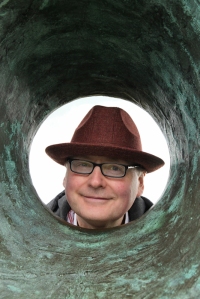
I made it very clear to both of them that their wellbeing and the happiness of their respective families was the only priority.
It was time to stop and I was very content to walk away.
I had no wish to be a messenger or agency that caused distress and consternation.
Research project terminated.
A confidential report to my head of department Dr. Gareth Stanton was the end point.
It seemed that each and every one of the surviving children of Alexander Wilson now knew of each other’s existence.
In their own time and under their own terms they could decide what to do next.
But there would be no implications of future publication.
This was a private and confidential research project that had transformed lives and certainly not a matter of any public interest with any likely published academic outcome.
What had you been able to confirm about Alexander Wilson’s intelligence career?
Officially hardly anything.
The Secret Intelligence Service was very polite but adopted their usual neither confirm, nor deny position.
I did receive some helpful guidance from ‘unattributable sources’ that I had some difficulty making head or tail of.
It was suggested that the file or files on Alexander Wilson were rather substantial.
He had had a career as an intelligence officer with SIS for several years; something confirmed by Alison’s memoir.
He was very popular and respected at the highest level.
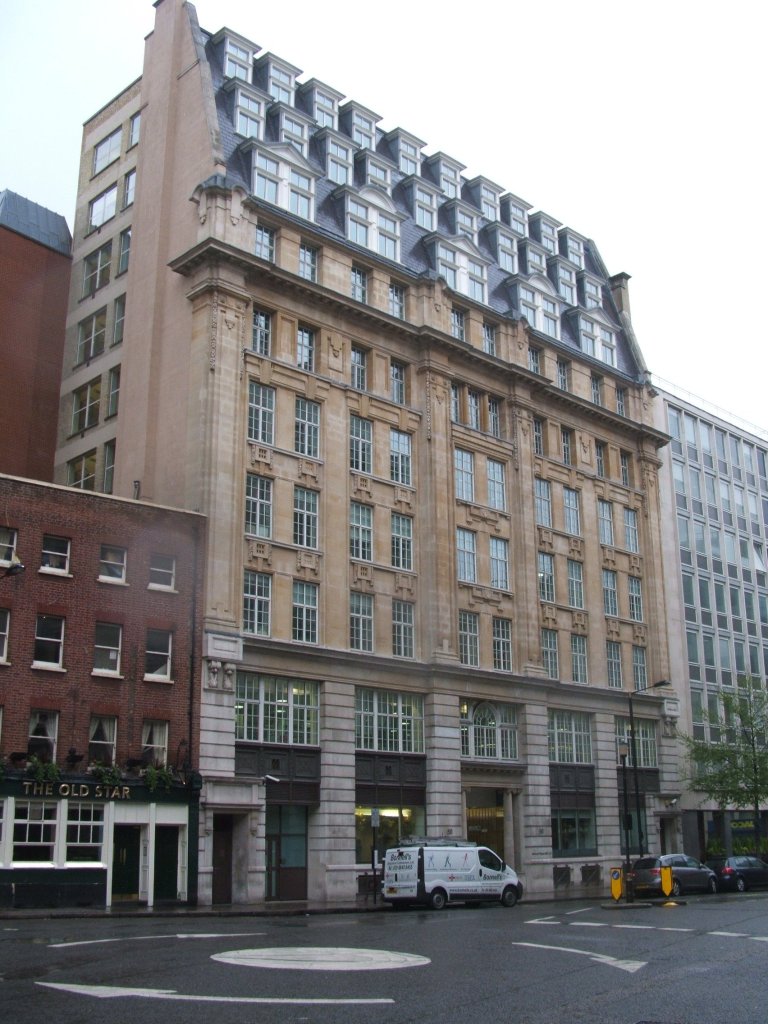
His Wallace of the Secret Service series was seen as positive cultural propaganda during the 1930s.
It was a kind of equivalent James Bond moniker that projected a positive global image of prowess, power and effectiveness.
He worked in the electronic and communications surveillance of friendly embassies and diplomatic legations. This unit was part of or known as Section X and was absorbed into GCHQ after the Second World War.
The references to S.S. in Alison’s memoir and scribbled on War Office papers was the acronym for the Secret Intelligence Service during World War Two.
There was an issue about the KGB traitor Anthony Blunt who was working in MI5 during the time Alexander Wilson was at MI6.
They were working in the same field though in different agencies.
One source seemed agitated about the contrast in their respective fortunes.
Blunt betrayed his country and ended up fêted by the establishment when Keeper of the Queen’s pictures.
He was given immunity from prosecution and avoided public exposure and condemnation until very late in life.
Alexander Wilson seemed to leave SIS under a cloud and lost his writing and intelligence careers and ended up living a somewhat down-at-heel, and obscure existence until he died in 1963.
Wilson’s role as Professor of English Literature and Principal of Islamia College was more likely than not to have been part of a project to enhance and improve the quality of education and support for Lahore’s Muslim community which prior to partition in 1947 had been a minority in the city.
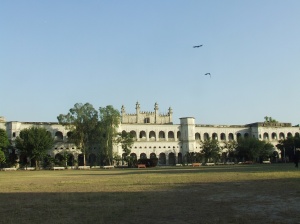
It was more likely than not that he was informing for, talent spotting, and recruiting for the British Indian Army and British Imperial intelligence agencies; namely Delhi’s Indian Intelligence Bureau and Indian Political Intelligence.
But you did in fact publish a book in the end in 2010. Does that mean Dennis and Mike changed their minds?
Two weeks after everything had come to a halt, they separately wrote to me asking me to continue with the research.
They were determined that the story should be told out of respect for everyone in their steadily growing family.
There had been some great shocks to absorb for sure.
Mike was insistent: “Rattle every skeleton in every cupboard!”
I was very privileged to speak to Douglas in Scotland for the first time.
Another hugely courteous, friendly and intelligent soul.
He was working in the Scottish government promoting and advancing Scottish Gaelic.
He had worked in further and higher education and had a PhD.
He was very willing to meet everybody.
I have to say the success in the coming together of this remarkable family is all credit to the quality, integrity, good nature, and dignity of everyone involved.
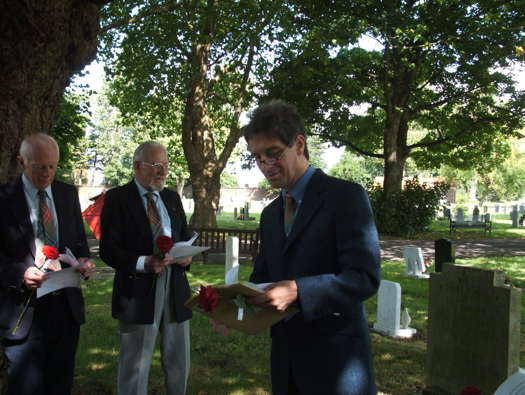
Gordon hosted the first big family gathering in 2007 and everything has progressed so well since then.
The narrative, story and experience belongs to them.
Three years after that famous meeting, Mike indicated to me that there were some issues with his health.
It became apparent in 2010 that the book needed to be completed and published rather sooner than later.
Mike asked for three parts: the detailed story of the investigation, an analysis of his father’s role in intelligence, even if speculative, and the context of the spying and espionage world in his time, and an analysis and assessment of his father’s career and significance as a writer.
The First Edition of the Secret Lives of a Secret Agent was 312,000 words and, in effect, three books in one.
Goldsmiths hosted the book launch in October 2010.
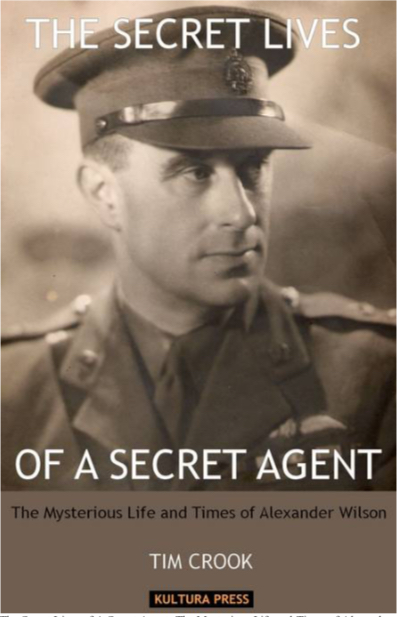
My head of Department Dr Gareth Stanton was hugely supportive and there was very considerable and favourable publicity.
By this time Mike was becoming affected by his Non-Hodgkin lymphoma condition, but after the launch party he was able to remember every word of the famous Henry V Agincourt speech in a very elegant and artistic recitation.
It was a truly heavenly gift that his new family gave him so much companionship, love, comfort and happiness before he passed away in December 2010.
All credit to Richard Shannon for introducing us and starting on that journey that began 5 years earlier.
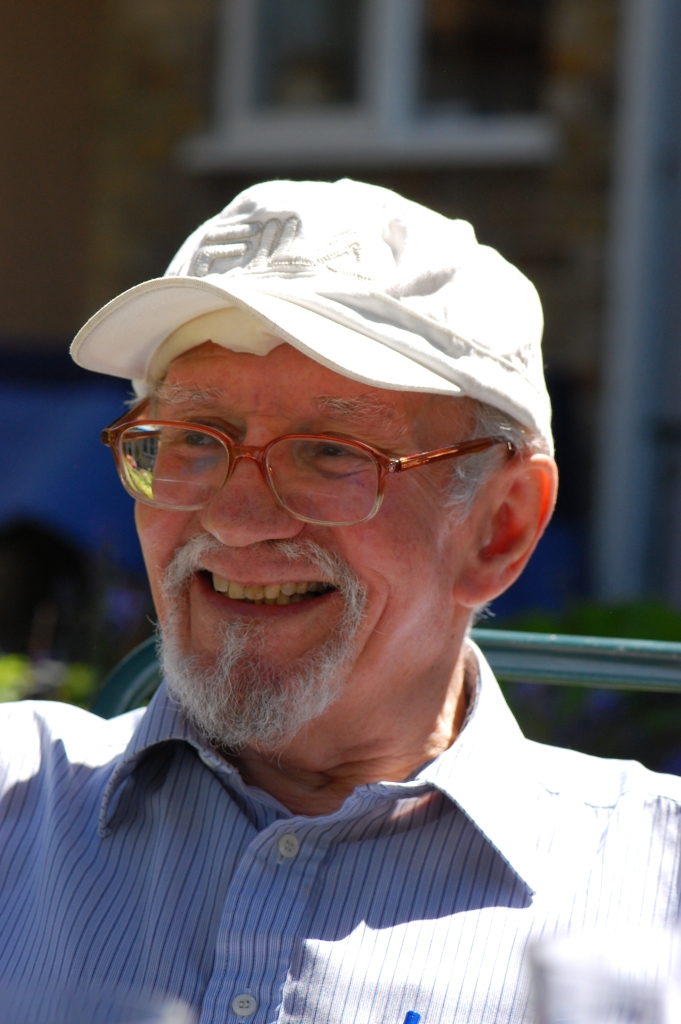
What was the impact of the book’s publication?
Three years later the Foreign and Commonwealth Office released a substantial tranche of archives and this included a file about the case of the Egyptian Ambassador in 1943.
It clearly refers to Alexander Wilson’s three year career in SIS and alleges that he had been dismissed from the service in October 1942 for faking a burglary at his London flat.
It was further alleged that his covert listening and translation from Arabic of telephone communications to and from the Egyptian Embassy had fabricated the existence of an intelligence gathering network of agents.
He was condemned as ‘a public danger’ and there had been agreement that any future employer should be warned about his unreliability.
What was your view on the significance of this file?
Even though his name is redacted, there is no doubt that this was about Alexander Wilson.
It explains his fall from grace, but raises many more questions than it answers.
It was the focus for my inaugural lecture as Visiting Professor to Birmingham City University in 2013.
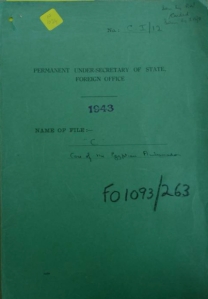
There are many more files in the National Archives showing that the then Egyptian Ambassador was intelligence gathering and working against the interests of Great Britain and its Empire.
It seems more likely that Alexander Wilson had faked the burglary to cover up the fact he sold Alison’s jewellery in order to pay for expensive new antibiotics that actually saved her life when she had serious post natal infections.
Files released from the former Soviet Union indicate that Anthony Blunt’s MI5 section was infiltrating human agents into the Egyptian Embassy and was also spying on the contents of the Egyptians’ diplomatic bag.
He was giving all this information to his Soviet contact in London and that MI5 had little confidence in the quality of the information they were getting from their agents.
The report by the MI5 officer Alex Keller concluding Alexander Wilson had faked the telephone transcripts is being kept secret.
FOI requests going as far as the Information Tribunal have been unsuccessful.
I think it is possible that the Egyptians were making up the agent network themselves to lead MI5 a merry dance.
The Chief of MI6 made it very clear that they had monitored Alexander Wilson’s listening and translation randomly, and each time everything had been correct.
It’s also possible that the KGB traitor Anthony Blunt at MI5 wanted to discredit the MI6 telephone bugging operation so he could take it over.
It would have meant he had more direct access and control of the surveillance that he could then give to his Russian contact in London.
It’s possible Wilson was made something of a scapegoat.
There’s no evidence he even knew about the MI5 report and had been asked for his side of the story.
The file provides pretty disturbing evidence that there was a plot to make sure Wilson never had any chance of public official or responsible employment.
The ‘deep state’ was on his case.
Just what was the extent of its interference and disruption to their lives?
The poverty Alexander and Alison experienced meant that they were under pressure to leave one son in a children’s home and give up their other son up for adoption.
It is to their credit they fought against that.
Has there been any recognition of Alexander Wilson’s significance as a spy writer and author of crime and romantic fiction?
It was excellent that the Blair Partnership persuaded Allison and Busby to re-publish the entire canon of Wallace of the Secret Service novels.
They’ve been selling very well- even though they were originally written between 1927 and 1940.
As Tony Parsons says, it is clear that without Wilson it is very unlikely there would have been Bond, Bourne and Smiley.
Alexander Wilson is a very substantial bridge and link in the development of British espionage fiction.
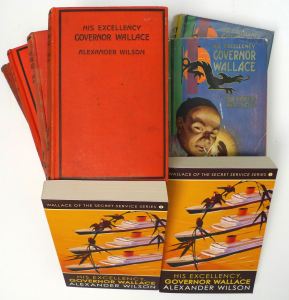
If any academic publisher is interested, I would be very happy to write a scholarly analysis of his entire authorial output both published and unpublished.
Are we learning anything new about Alexander Wilson and what are the unresolved mysteries still to be solved?
There are new developments all the time.
Alexander Wilson’s great grandson, Christopher McGill, visited Lahore in Pakistan in 2015 and carried out invaluable and significant research.
He was able to measure the true extent of Wilson’s legacy at Islamia College, and with some great assistance from the Bishop of Lahore confirm that there was no certificated marriage between Alexander and his second wife Dorothy.
It seems there was a marriage ceremony and ritual in the Cathedral, but no official documentation; something Dorothy no doubt would have been appalled, later, to find out.
Christopher realised there was every reason why Alexander Wilson should continue to be revered as a past Principal of Islamia College, University of the Punjab.
Wilson hugely respected the religion of Islam, was devoted and wholly committed to the Muslim community of Lahore and the states of Punjab and Waziristan.
He gave them six full years of his professional life substantially improving educational standards at the college, spectacularly raising its sporting achievements and enhancing the pastoral quality of life in the College and its wider community.
That respect is fully present in his published fiction and the clear evidence and respect he had for the very venerable Abdullah Yusuf Ali who had recruited him.
Is it possible to find out anything more about Alec and Dorothy’s relationship?
While the television series was in postproduction I have been able to discover some fascinating information about how they are likely to have first met each other.
It seems their first encounter was when they first sailed out in the boat to India in October 1925.
Previously, it was clear that they had first appeared in Lahore being named as Mr and Mrs Wilson from 1928.
But they had both sailed in the City of Nagpur together from Liverpool three years earlier.
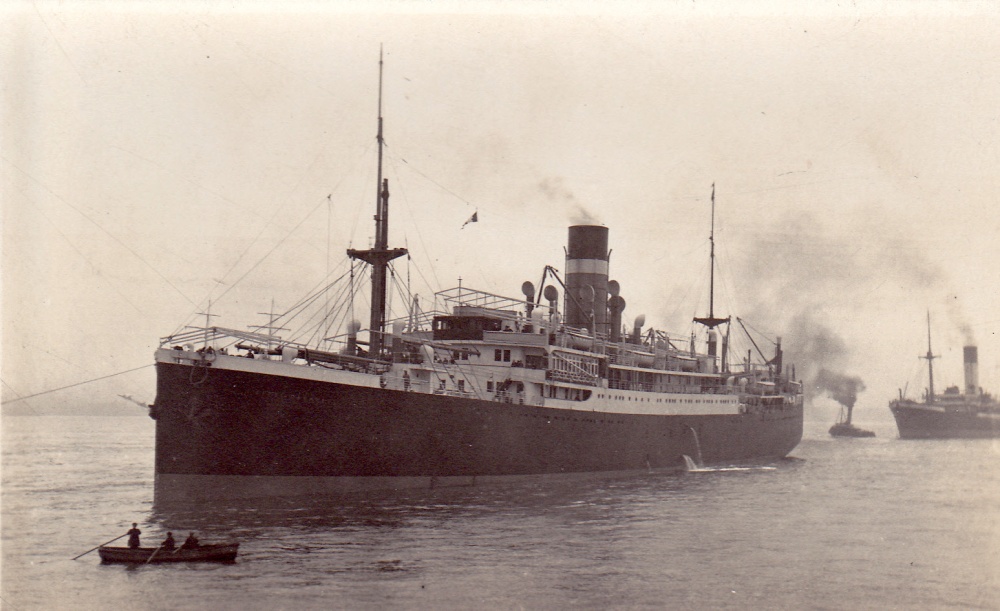
Richard Shannon had asked me to do some more research on his grandmother’s family and he loaned me another very mysterious and highly evocative photographic album with very little annotation.
Absolutely fascinating black and white images of happy couples, people in France during the First World War, men and women in uniform, faded newspaper cuttings, and pictures of ocean-going liners offered many important forensic clues to follow up.
I was intrigued to find out if Dorothy Wick appeared in any passenger lists.
Sure enough her name came up in the list for her first sailing in 1925.
As I looked up the names of her fellow passengers on this page, another name was somewhat noticeable.
An ‘Alexander Wilson’ from Colbury near Southampton was also sailing out to take up his post as Professor of English Literature at Islamia College, in Lahore.
This enabled me to discover the back stories of Dorothy’s very impressive family, and her brother Reginald who served throughout most of the Great War in the cavalry of the Canadian Expeditionary Force.
To think he had only been 17 years old when emigrating to Canada from Hull to start a new life.
And I was able to identify some wonderful earlier photographs of Dorothy.
It should be pointed out that Mike Shannon never held it against his mother that she had deceived him about his father’s death.
He realised that Dorothy was dealing with something awful that she had discovered and was coming to terms with about Alexander Wilson, and she was only seeking to protect her young son.
We have to understand how important reputation, respectability, and social status were for people like them in the 1940s.
The values then were so very different.
What is the significance of Ruth Wilson’s executive production and performance of the role of her grandmother in the BBC (BBC) and PBS (USA) series Mrs Wilson?
This is a major chapter in the development of the Alexander Wilson story and his family.
This is truly an outstanding artistic and production achievement by Ruth who has invested all her heart and energy into this hugely challenging and courageous project.
I really can’t think of anything more courageous for a professional actor to take on.
To perform the grandmother she knew in a family history narrative that defies belief, stretches the norms and limits of human experience and understanding, and to make sense of an extraordinarily complex and baffling story, is an outstanding tribute to her family.
The key to its success is undoubtedly focusing on the point of view of Alison.
The scriptwriter, Anna Symon, has quite rightly and very richly interpreted and developed a dramatic unity focusing on Alison’s remarkable memoir as well as drawing from my book and research.
Being a dramatisation large parts of it express dramatic truth and, of course, engage a degree of dramatic licence in respect of the facts of what actually happened.
This is as powerful and impactful a dramatisation of Alison’s story and her part in the wider epic as you could ever get in the television filmic medium.
I am really in awe of what has been achieved and I hope everyone involved in the production gets the recognition they deserve.
The series brings many dimensions of the story to a global and very public audience.
I hope the intensity of the public interest generated can persuade the archivists and historians at the Security Service and Secret Intelligence Service to do what they can to release more information into the public domain about these events that took place more than 70 years ago.
What can we expect to find in the second edition of the Secret Lives of a Secret Agent?
It’s completely different from the first edition.
I’ve done my best to give focus to the perspectives of the four women in Alexander Wilson’s life with separate chapters on Gladys, Dorothy, Alison and Elizabeth.
It’s been written to make sense and give clarity to all the complexities of Wilson’s character and
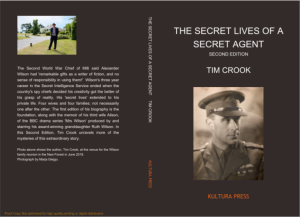
life and times.
There are two chapters on his intelligence career and two chapters on his writing career.
I’m hoping it provides a comprehensive and interesting account of everything we know about the facts of Wilson’s secret lives.
What has given you the most satisfaction in this project?
It is undoubtedly the positive outcomes of Wilson’s different families discovering and meeting each other and for that to have been a happy experience bringing so much joy into their lives.
In May 2010 each of the various families very kindly thanked me for my ‘years of patient research.’
They said that this research had ‘made us aware of each other’s existence and enabled us to become united as one strong and loving family.’
I think it was wonderful for the two brother poets, Mike and Dennis to find that they had this most refined and noble literary art in common.
They became published poets.
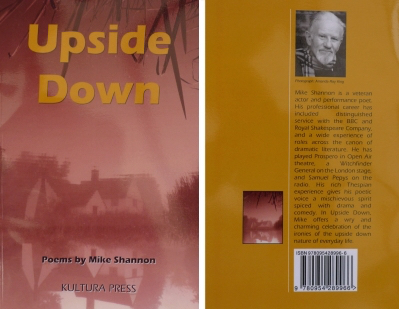
Dennis has, in fact, had five volumes of his work published and his ‘Elegy to the Common Soldier’ is regarded as a very significant poem of the Second World War.
He wrote it in slit trenches while on active service in the front line during the Battle of Normandy campaign in 1944.

It was so fitting that he would be guest of honour at the Queen’s reception for contemporary poetry at Buckingham Palace in 2013 and receive an Honorary Fellowship from the University of Southampton for services to literature.
Dennis’s poetry has depth, qualities and significant literary importance for his generation.
Elegy speaks for my father and all those brave people who risked and gave their lives in the liberation of North Western Europe in 1944.
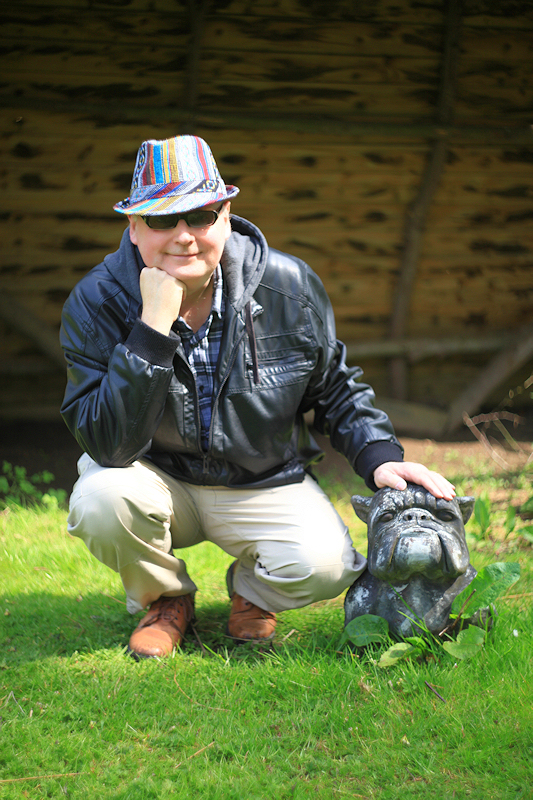
Published research on the Alexander Wilson story that is the foundation and frame-work of the BBC Mrs Wilson series.
The first edition of the Secret Lives of A Secret Agent: The Mysterious Life and Times of Alexander Wilson was published in 2010 by Kultura Press.
It is 685 pages long.
You can hear Tim Crook reading the beginning of the first chapter.
The book is a comprehensive account of how Tim Crook enabled the various families of Wilson to learn about each other’s existence, become aware of their whereabouts and their willingness to meet each other.
It also enabled them to understand the bigger and complicated story of Alexander Wilson’s life.
The printed book is no longer available, but if you want to access the evidence of the extent of this research story, you can acquire the Kindle Edition, published in 2011 from amazon.co.uk or amazon.com.
Professor Crook presented further original research and analysis on Alexander Wilson’s career in MI6 in his inaugural lecture as Visiting Professor to Birmingham City University in 2013.
He published some of this research in the chapter ‘The sealed and emptying chambers of Britain’s intelligence history: Why the absolute exception for security sensitive matters is a present and continuing injustice’ in the peer-reviewed volume FOI 10 years on edited by Tom Felle and John Mair, published by Abramis Academic 1st January 2015. Download from this link:-
Sealed and Emptying Chambers of Britain’s Intelligence History
Professor Crook made legitimate and persistent requests for files and information from the Secret Intelligence Service (MI6) and the Security Service (MI5) and also sought guidance and information from non-attributable and confidential sources.
He researched, prepared and submitted all of the FOI applications seeking the release of files held by the Secret Intelligence Service on Alexander Wilson, and the MI5 report by Alex Keller produced in 1943 about Wilson’s alleged fabrication of an Egyptian spy ring in London.
This resulted in a ruling by the Information Tribunal First Tier in 2016.
Before Judge Peter Lane, Marion Saunders, Rosalind Tatam: Between Professor Tim Crook, and the Information Commissioner, and the Foreign and Commonwealth Office. Decision and reasons 16th April 2016. Download from this link:-
Prof Tim Crook, FCO, Information Commissioner 2016013 190616 Decision
Professor Tim Crook asked his MP James Cartlidge to request that the Foreign and Commonwealth Office carry out a further security review in the light of the Information Tribunal’s observations. The Minister of State Sir Alan Duncan said a new review had still concluded that the Alex Keller report remains ‘security sensitive.’ Download from this link:-
Sir Alan Duncan letter February 2018
Professor Crook has also reported on the legal issues arising for The Journal magazine of the Chartered Institute of Journalists. See:
REFORMING FOI TO UNLOCK THE SECRETS OF INTELLIGENCE HISTORY
Tim Crook / November 11, 2016
The production of the BBC’s Mrs Wilson series was only made possible as a result of Professor Tim Crook’s research investigations that have spanned over 13 years.
This is why Snowed In Productions acquired the film and television rights for The Secret Lives of a Secret Agent and Professor Crook’s subsequent research for the family that recently includes the discovery that Wilson met his second wife Dorothy on the boat out to British India in October 1925.
Each broadcast episode fully credits Professor Crook and his book.
Professor Crook has shared his royalties equally with each of Alexander Wilson’s families.
His motivation was the unique nature of this case and the special circumstances of this research enquiry.
New research and analysis is included in the second edition of the Secret Lives of a Secret Agent which has been published 30th November 2018.
This is much shorter than the first edition (one third at 242 pages.)
We recommend you buy it from independent book shops, or the respected UK book chain Waterstones.
It is a popular and highly reviewed book available at amazon.co.uk with free delivery in the UK
You can also obtain a fast direct print on demand version from Blurb.co.uk, where you can learn more about Dennis Wilson’s poetry books and obtain direct orders.
The Scriptwriter, Anna Symon, and the producer of Mrs Wilson, Ruth Kenley-Letts met Professor Crook on three occasions in a three year period to discuss his research during the preparation of the scripts.
Professor Crook also responded to enquiries for historical artefacts, documents and information in the research, writing and production of the series.
Just amazing work done by Professor Crook and Alexander Wilson’s children.
So happy to read that they have met and are an extended family! And amazing acting done by Ruth Wilson! I love “based on facts” stories. Thank you for making this information available for people that continue to want to know more!!
LikeLiked by 1 person
Dear Christine,
Many thanks for your positive feedback. Sincerely and respectfully, Tim Crook
LikeLike
Thanks to the amazing research of Tim Cook an unbelievable but true story has been told. Perhaps the greatest gift of all has been the uniting of all the different families that Alex Wilson had. It was a riveting TV series but an even more riveting true story. A million thanks to Tim Cook for not only his reasearch but for letting us hear his story.
LikeLiked by 1 person
Dear Lauren, that’s very kind of you. Thank you for the feedback. It is much appreciated. Sincerely and respectfully, Tim Crook.
LikeLike
Professor Crook I must apologize for my unwittingly misspelling your last name. I am very much looking forward to reading your book. Thank you again for your incredible and dedicated research into the several lives of Alexander Wilson. This undoubtedly is a story stranger than fiction. If you learn more about him I hope you will be able to publish that as well.
LikeLike
I enjoyed the chapter above, is the entire book available as an audio book?
LikeLike
Thank you for comment. There are currently no plans to make any of the editions of biography available as an audio book. We shall, however, raise the idea as a future possibility.
LikeLike
Professor, I am deeply touched by your gentleness and compassion as you became involved with members of the Wilson family. The facts about Alex Wilson are painful and bewildering. I have great admiration for all the family members who refused to be saddled or defined by Alex’s deceit and abandonment. Alison Wilson’s brilliant work demonstrates that Ruth found peace in forgiveness. May we all be challenged to forgive those who have wounded us.
LikeLike
Dear Anne, Many thanks for your thoughtful and supportive comments. Sincerely and respectfully, Tim Crook.
LikeLike
Hi there, just stumbled on this story – this page states that Gladys died in 1991, but the Wikipedia page and Find A Grave both list 1981, can you clarify? Thanks!
LikeLike
Dear Tess, Many thanks for your enquiry. Gladys passed away 18th June 1991 at the Royal Hampshire County Hospital in WInchester, England. Our source is the official death certificate so unfortunately there is a mistake on the Wikipedia and Find A Grave websites. We will try and ask them to correct this. Thank you for bringing it to our attention. Sincerely and respectfully, Tim Crook.
LikeLike